Aronian leads the pack in the Berlin Grand Prix
The first round of the group stage began at 3 pm at the City Centre on Unter den Linden with the opening call from Ivan Syrovy, Chief Arbiter of the event. By that time, and according to the rules of the tournament, all the players had been PCR-tested and were firmly seated at their boards.
For one of them, American GM Hikaru Nakamura, who enjoys a wild card invitation for the series, today was the first classical chess game for him in more than two years. In fact, he had even been dropped from the FIDE classical rating list due to inactivity!


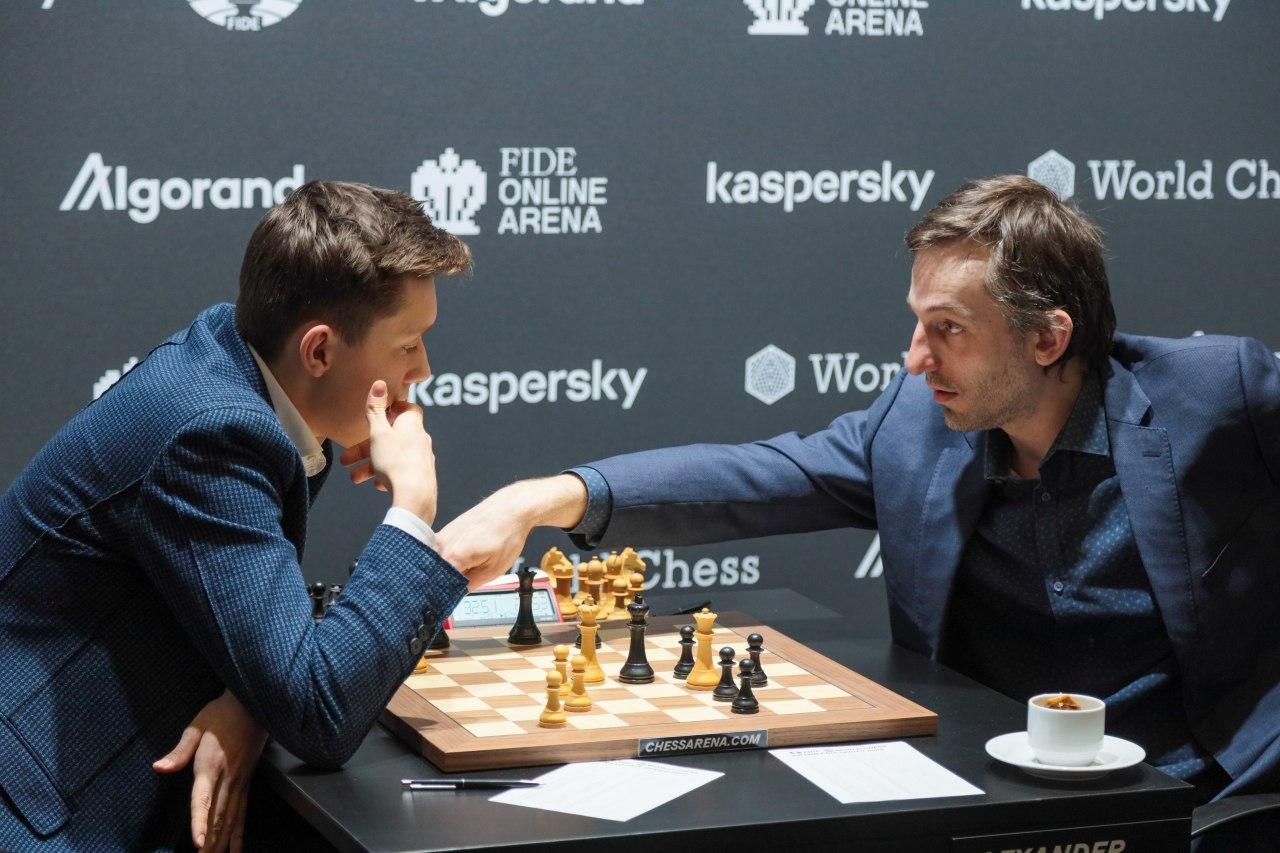
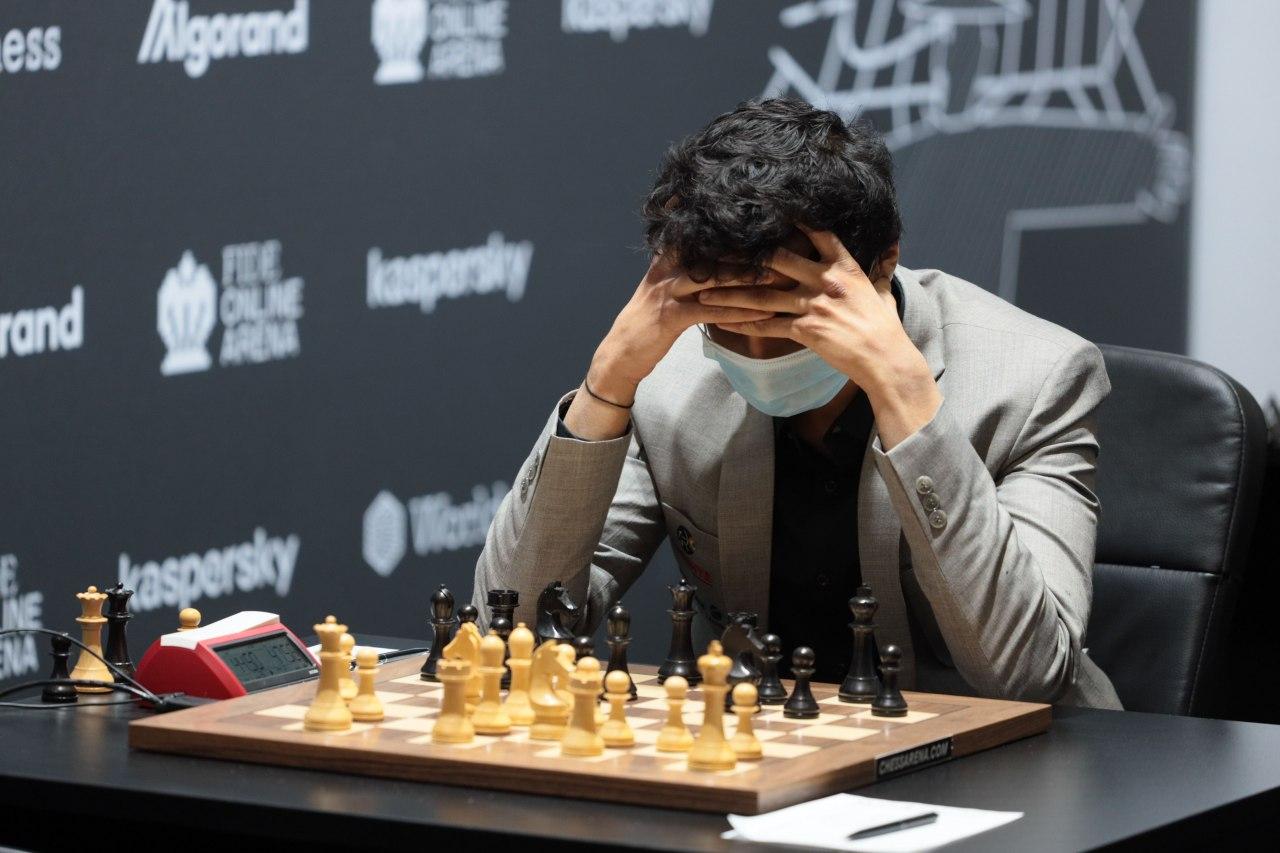
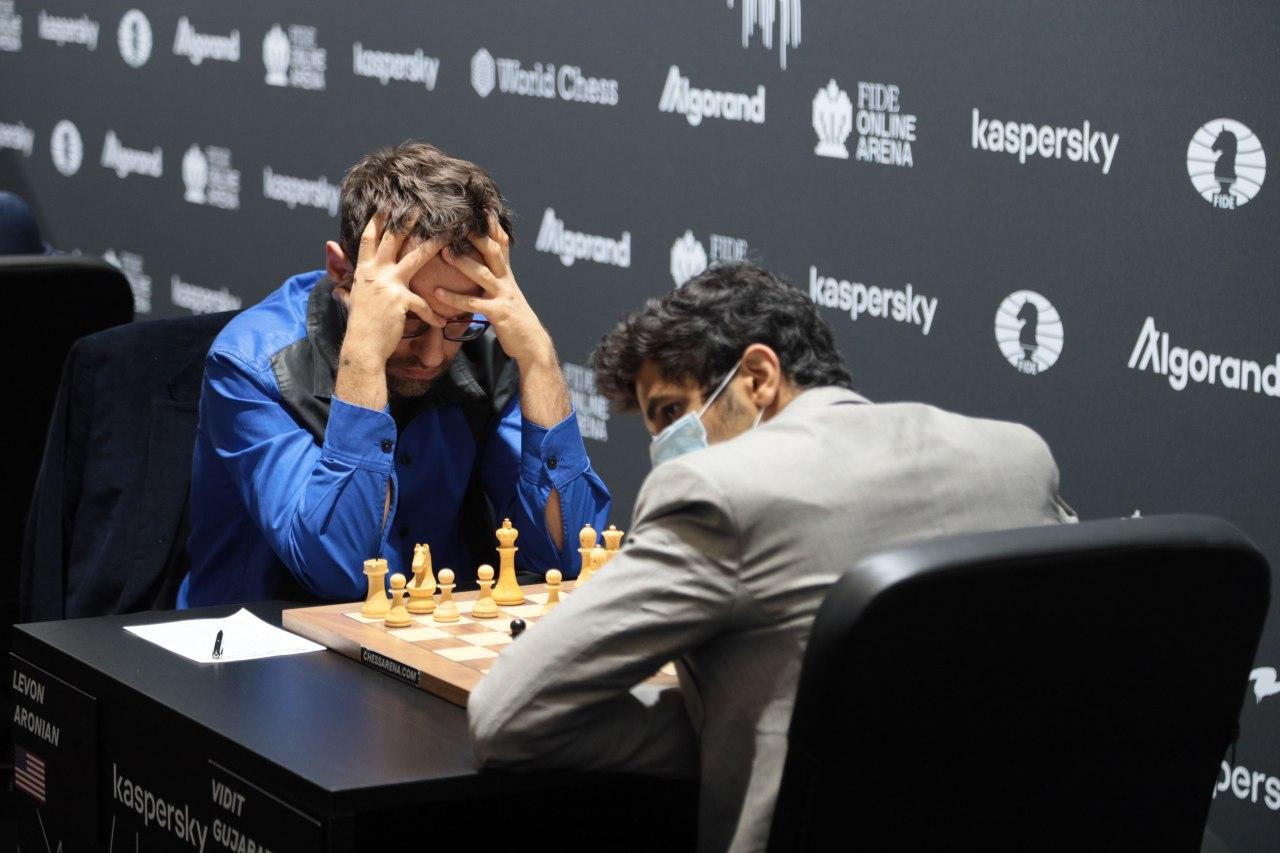
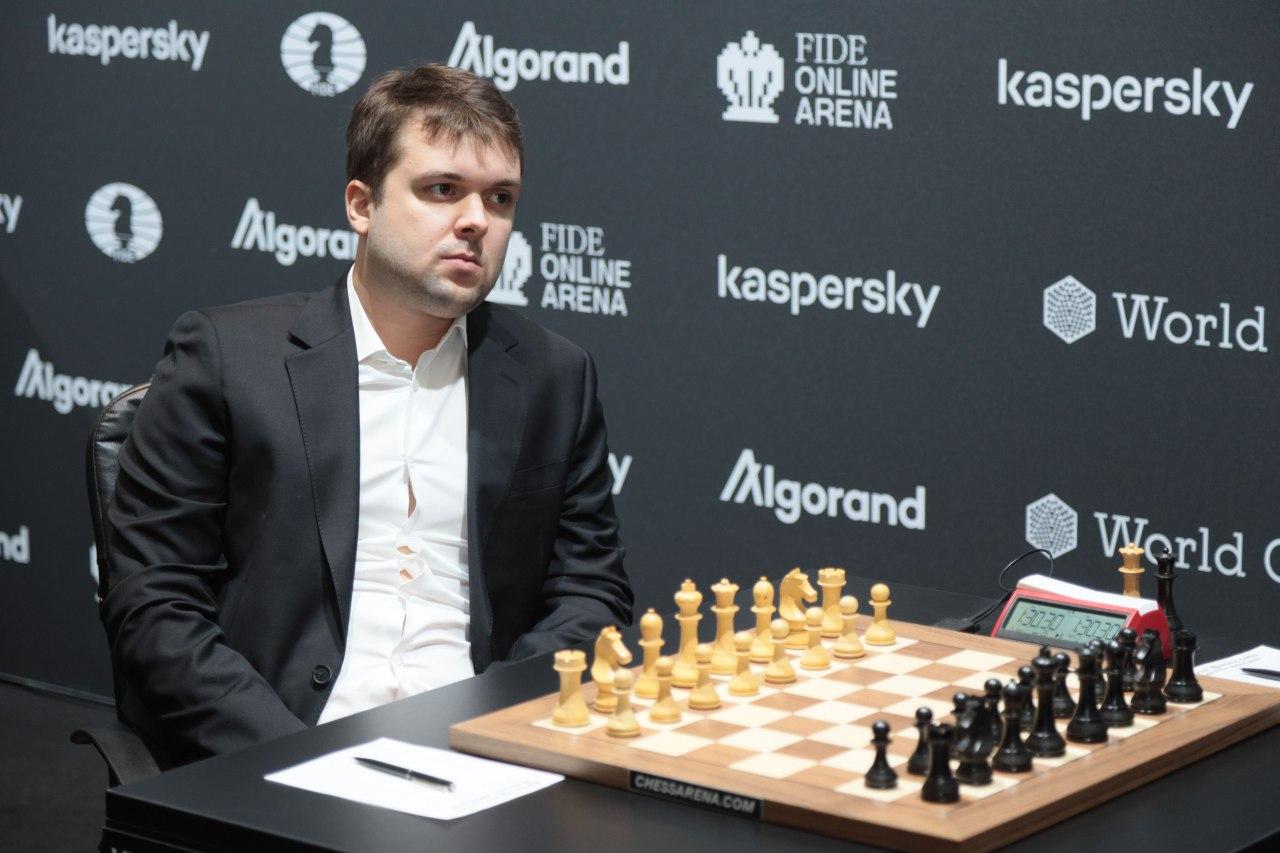
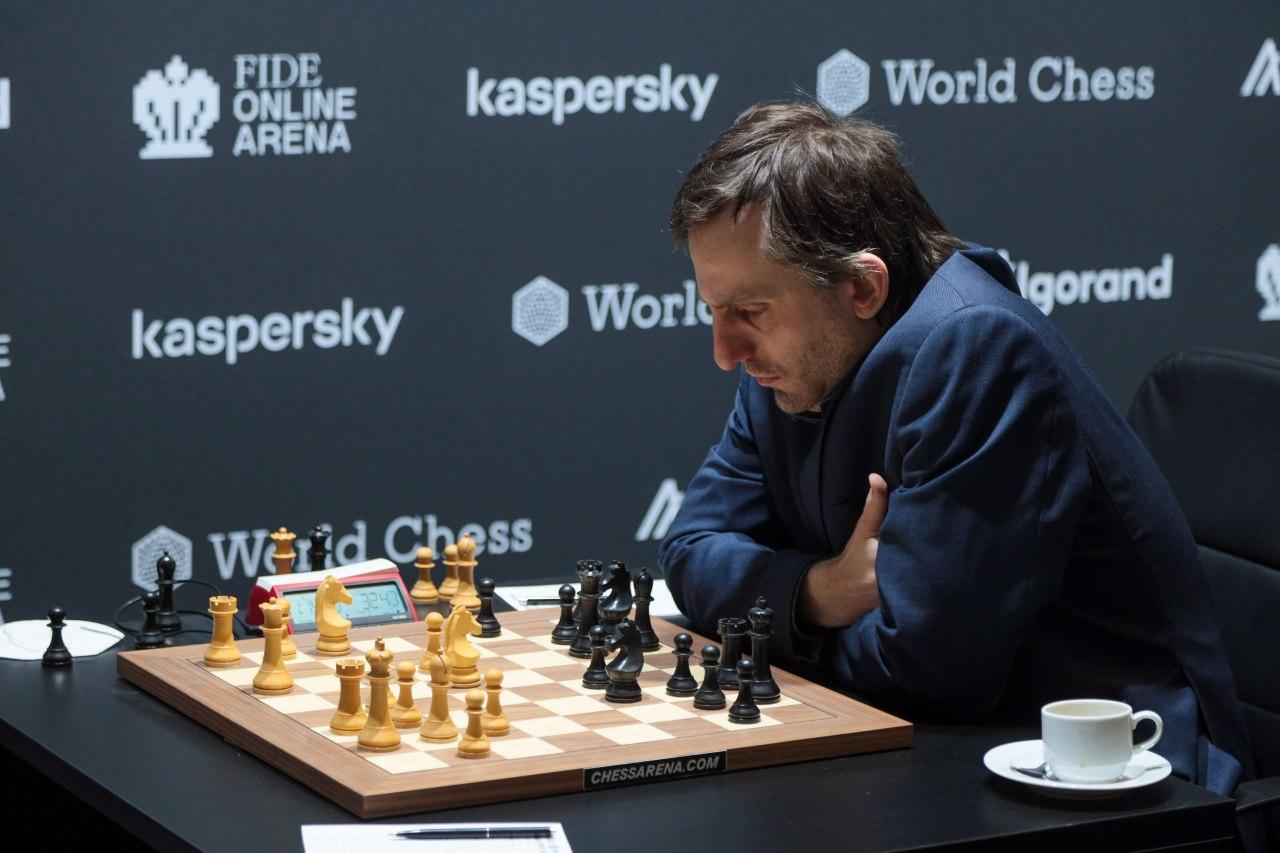
Although some of the games ended in uneventful draws, the 30-move rule proved to be a good sports decision, as the players had to battle it out for most of the afternoon, offering a great show for all the attending spectators, and thousands of online viewers. The Spanish audience was in for double enjoyment: the variation of the round was without any doubt the Catalan opening, three of the eight games paying homage to Barcelona.
At the end of the day Polish GM Radoslaw Wojtaszek, along with Russian GM Vladimir Fedoseev and USA GM Levon Aronian were able to score the first decisive points of the tournament, leaving Aronian as the only leader in Pool C.
Pool A
The first game to finish was a solid draw between French GM Etienne Bacrot and American GM Hikaru Nakamura. Although Bacrot tried to prove an edge in a symmetrical Berlin position (a nice twist for the first game), Hikaru showcased his defensive skills and kept the advantage to a minimum.
In their postgame interview with tournament Press Officer IM Michael Rahal, Nakamura said “I think at the end of the game I was playing too quickly, maybe because I haven’t played classical chess for so long and it felt too boring!”
The second game of this pool was a classic. Russian GM Alexander Grischuk, a three-time qualifier to the Candidates via the Gran Prix series, brightened up the afternoon with one of his forty-five-minute, out-of-the-opening deep thoughts, in a position that most mortals would have dedicated less than three.
But apparently, the time spent was worth the while: his 19-years-old opponent Russian GM Andrey Esipenko couldn’t capitalize on the huge time gap on the clock and both of them ended up in time trouble. When all seemed to be doomed for Esipenko, he found a great three-move repetition drawing resource. Online commentator GM Evgeny Miroshnichenko was impressed, declaring “I am amazed at Esipenko finding all that. Well calculated.”
Pool B
Both games in this group ended with a decisive result. In the first game between the two Russians (players from the same federation must resolve their games in the first and fourth rounds) GM Vladimir Fedoseev outplayed his young opponent GM Grigory Oparin in a double-edged isolated pawn middlegame.
Oparin understood after the game that his position was slightly worse but defendable until he played 25…h3? (instead 25…hxg3 was better), leaving him to face very difficult endgame situations. Fedoseev started to coordinate his minor pieces and soon the game was over.
Meanwhile, in the other encounter, Polish GM Radoslaw Wojtaszek was able to get a slight edge from the opening but his opponent Hungarian GM Richard Rapport defended with great precision. At the critical moment, Rapport sacrificed a pawn, no doubt intending to hold a minor piece knight ending but then missed a nice king maneuver to penetrate in his position.
An important win for Poland’s number two, seeking to emulate the success of his compatriot GM Jan-Krzysztof Duda, winner of the 2021 World Cup.
Pool C
Both of the games in this group were very exciting. USA GM Levon Aronian took the early lead in the pool with a good technical win over Indian GM Vidit Gujrathi. The game was more or less balanced during most of the opening and middlegame but at some point, Vidit started playing slightly too passively.
In his postgame interview, Aronian suggested precisely this: “It’s a very sharp opening where lots of things can go wrong. It was unpleasant for me but maybe his approach was a bit too passive.”
And added “After 21.Bg3 I felt that I was out of danger and it should be a draw, but it’s pleasant to push a little bit with White.” Vidit understood that “With hindsight allowing his f5 pawn thrust was a mistake” but his position was already difficult to defend.
In the second encounter of this pool, local GM Vincent Keymer and GM Danil Dubov played what would be the longest game of the round, in which the Russian demonstrated textbook technique defending a rook vs rook and bishop ending to a draw.
Keymer had enjoyed a much better position during most of the game, maybe even winning at some point, but as Dubov correctly pointed out after the game “The problem is choosing the best between several good moves”.
Pool D
Both games in this group ended in very solid draws with excellent opening preparation by the players handling the black pieces. Indian GM Pentala Harikrishna followed his top-notch Caro-Kan opening preparation for most of the game, reaching a position he had analyzed previously, a pawn up but with no real winning chances.
“I analyzed this endgame quite deeply a few years back and I thought White was much better, but maybe I made a mistake” was Spanish GM Alexei Shirov’s conclusion in the postgame interview.
In the face-off between the two American GM’s Wesley So and Leinier Dominguez, a peaceful outcome could be expected. Both players agreed that the game had been very equal and Wesley praised his opponent’s opening preparation. “Today wasn’t ideal. I think I’m still jetlagged” was So’s explanation in his interview.
Both of the players are part of the American Olympic Team. Facing a question regarding this topic, Wesley declared his optimism: “Last time in Batumi, Hikaru and I were in bad shape, yet we still won silver. I think, if Fabiano and Levon get back in form, we’ll be in good shape, because Leinier and I are very solid.”
About the Tournament
The three-tournament Grand Prix series which will unfold from February to April features twenty-four of the world’s best Grandmasters, who will compete in two of the three events. In order to make the series more exciting and reduce the percentage of draws, FIDE and World Chess have changed the format.
This innovative approach is new for the chess world but very similar to the Super League: the first stage has four pools of four players and the winner of each pool advances to the semifinals and then to the final.
The venue of the first leg is the World Chess Club Berlin, located at the City Centre on Unter den Linden, 26-30 and the games will be played from February 4th-17th every afternoon at 3 pm. Along with the two qualification spots for the Candidates, the event has a 150.000 euros prize fund, 20.000 euros more than the 2019 series.
All the games will be broadcasted live with expert commentary in three languages here. More information and the full schedule can also be found on the worldchess.com website. Full pairings can be found here.
Due to COVID restrictions currently in place, only a limited number of tickets are available. Please note that the 2G+ rule applies to the event, which means that visiting the venue is only possible for those who either have a complete vaccination with EU-certified vaccine or proof of recovery and can additionally present a booster dose certificate or a negative test result.
Leading partners supporting the FIDE Grand Prix Series 2022 include:
Kaspersky as the Official Cybersecurity Partner
;
Algorand as the Official Blockchain Partner
;
Prytek as the Technology Transfer Partner
;
FIDE Online Arena as the Official Partner.

